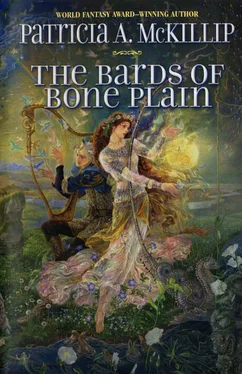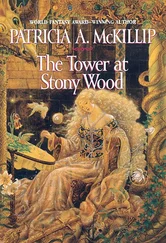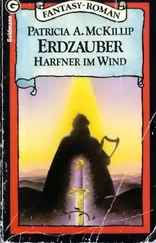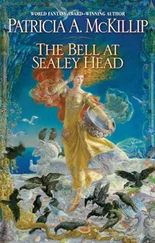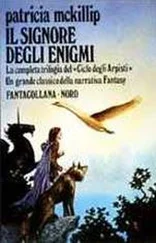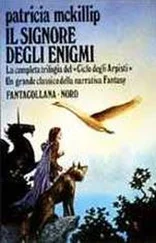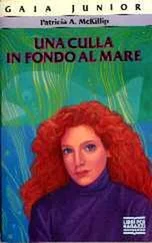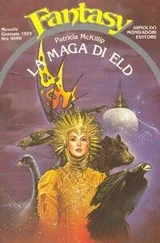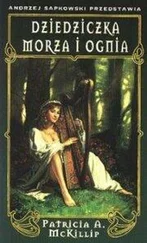Phelan blinked. The raw silk of the sofa beneath him seemed to breathe beneath his nape, along his backbone, like something quickening unexpectedly to life.
“Circle of Days,” he whispered, and saw in his mind’s eye the path out of the interminable years at the school: the Wandering Bard, the Unforgiven, who once had a secret, been included in a mystery.
Phelan moved before he realized it, gathered the manuscripts, and stood for the journey back to the school archives. Something tugged at him before he took a step: his father with his head cluttered like a museum basement with brilliant facts and fantastic shards of past that rarely if ever emerged into the light of day.
What might he know about such mysteries?
Then Phelan laughed, which was all Jonah would do at the question, tell him he wasted his time; it was nonsense, a figment, and anyway, it had all been investigated, answered, written down centuries before Phelan drew his first breath, bellowed his first opinion at the world.
He left his father in the company he most preferred, and went to track a bard who was neither living nor dead, and to find where a circle began.
The winter that killed the bard who replaced Declan at King Oroh’s court seems to have been one of the harshest on record. The Stirl froze nearly all the way from the sea to the tiny village on the plain, which had grown enough to become a coherent entity, and which named itself Caerau. Court records of nobles all over Belden are filled with the sufferings of high and low. Even the king, who liked to keep his court in restless motion in order to exhaust the hospitality and the coffers of potential rebels, hunkered down for the season in the slightly milder climate of Estmere with Lord Deste, whose ample fields and woods provided food, game, and firewood enough even for the king’s entourage. His household books record the deaths of the very old and the very young; most succumbed to what was only known then as “fever.” The king’s own records also list the illnesses and deaths of aged courtiers as well as assorted riding and hunting accidents in the icy fields and woods. The death of his bard, Loyce, was listed among the hunting accidents: he was vigorously sounding the hunting horn when his galloping horse slipped on an icy patch buried under the snow. “Both horse and rider there died,” the records say tersely, disguising what must have been a poignant incident. Other sources across Belden record a “rain of birds frozen in their flight,” tree limbs overburdened with snow cracking and falling on hapless travelers and rooftops, bodies discovered frozen beneath the ice in rivers, ponds, and wells, bands of the poor, the outcast, and the outlawed living in caves and converging on the unwary “like a great swarm of crows upon the dead.” References to children stolen from their cradles by hungry animals are common; on rare occasions, but very likely true, they are eaten by their desperate neighbors.
For every death recorded, a dozen or a hundred probably went unnoticed by history, from the rough northern fishing villages and mountain clans who had little use for writing and kept everything in memory, to the isolated villages in the western crags, and in the southern marshlands of what was once known as Waverlea. As for the school, records list three students who fled the stark life to return to their more comfortable homes. There are accounts payable to a local healer for poultices and herbal remedies, as well as for a futile visit to a student who was struck by an icicle that plunged down from the tower. His death passed with perhaps untimely swiftness from a matter of household record into the speculations and wild surmises of ballad.
What the household records do not divulge is how a couple dozen students spending a deadly winter surrounded by snowcovered plain and cold stone, inadequately washed, living on monotonous winter fare, constantly in one another’s company, managed to deal with one another without a continual drain of “accounts rendered to Salix of Caerau, healer ...”
This day at sunrise:
we make bread.
At noon by the river
we clean the clothes and pots.
Until the waning light of day
we weave our baskets
and bead the hunters’ armbands.
At the rising moon
we speak our dreams,
we sing to the dead.
We sleep.
We dream.
FROM “CIRCLE OF DAYS” TRANSLATED FROM THE ANCIENT RUNIC BY HERMIA CREELEY-CORBIN
Nairn, opening his eyes the morning after his moonlit conversation with Declan, drew his first waking breath and did not think of Odelet. He pulled on his boots without thinking of her. In the kitchen, he took a bowl of porridge from her hand so absently that even she was startled. Her widening eyes, her faint, delicate flush penetrated his distant thoughts; he gazed back at her, perplexed, as one who has been spellbound might remember his enchantment like a sweet, strange, fading dream.
He was still ensorcelled; only the spell had changed.
Now the words that haunted him were fashioned of twigs and meant mysteries. He breathed them in; he drew them in dirt, scratched them on stone, traced them with a forefinger whenever he touched the outward face of one: “egg,” “grass,” “hill,” “knife,” “bread.” They took fire in his mind as once Odelet’s name had burned, relentlessly bright, feeding on an inexhaustible fuel of possibilities. What lay beneath the prosaic images of language might lie dormant within the world itself: the busy egg within its shell, the seeded earth. Somehow music could bridge that great, hidden power between a word and what it truly meant. But Declan had not yet explained the method.
The Circle of Days, he called his lists of ancient language. Indeed, it seemed that commonplace, like someone’s early household records. “Sun” and “moon,” they learned, “wash,” “arrow,” “king,” “owl,” “smock,” “fish,” and “hook,” “needle,” and “eye.” Nairn had no idea who among the students belonged to the enchanted circle destined to learn such wonders. They would know one another, Declan said, when they were ready.
Oddly enough, distracted from his humiliating passion by the fascinating otherness weighing in his brain, Nairn finally learned to talk to Odelet. The magic had left her, invaded other things. She still caught his eyes at every movement, charmed his heart with her voice and music. But, no longer spell-ridden, he could finally see her more clearly: the highborn lady who had learned to boil an egg and keep the fire burning under a cauldron of lentils for the sake of her music.
Nairn lingered in the kitchen now instead of sneaking through it; he chopped carrots and onions just to listen to her, stayed to scrub pots after a meal. He was awed by her courage in coming to that isolated hillock on the plain, and he wondered if she, too, had been drawn there by more than music.
He drew an ancient word in spilled flour one morning while she was making bread: three twigs that she brushed away without a glance, so he guessed that she was not a part of Declan’s secret group. But they did have one thing in common: both had run away from home.
“I had a horse, and I knew where I was going,” she observed wryly. “You had nothing but your feet.”
They had gone outside after supper to sit on the hillside and play songs of Estmere and the Marches to one another, she on her harp, he on a pipe. The long summer had drawn to an end; the oak leaves were turning. Somewhere in the dark, Declan played, down by the river maybe, like them watching a full moon as golden as his eyes detach itself from the earth and drift. A tangle of music and voices within the walls behind them seemed engulfed by the vast, cloud-streaked dark.
Читать дальше
